JournalismPakistan.com | Published April 02, 2014
Join our WhatsApp channel
ISLAMABAD: Just over one in two citizens (52%) across 17 countries, including Pakistan, polled for the BBC World Service disagree that “the Internet is a safe place to express my opinions,” outnumbering the 40 percent who agree it is safe.
The poll, conducted by GlobeScan among over 17,000 people worldwide between December 2013 and February 2014 is being released as part of Freedom Live — a day of broadcasts on the World Service’s 27 language services exploring stories about freedom from around the world.
While one-in-two judge the Internet an unsafe place for expressing opinions, two-thirds (67%) say the Internet brings them greater freedom, with only 25 percent disagreeing.
One in three citizens (36%) across the 17 countries say they do not feel free from government surveillance and monitoring, making this the worst rated of five freedoms examined in the poll. Majorities of Americans (54%) and Germans (51%) do not feel free from government surveillance, while in contrast, strong majorities feel free of surveillance in countries such as China (where 76% say they feel free of surveillance), Indonesia (69%) and Russia (61%).
Media freedom was also given low ratings. Across eight countries surveyed in 2007 and 2014, the percentage of people who feel that the media in their country is “free to report the news accurately, truthfully and without undue bias” has dropped by nearly one third over the last seven years, from 59 per cent to 40 per cent. The biggest falls occurred in Kenya (down 37 points), India (down 23 points) and Russia (down 20 points). In the UK and the USA, only a minority of respondents now feel that the media in their countries is free, compared to majorities in 2007.
As for other freedoms, strong majorities across the full 17 countries surveyed consider they have a high level of freedom when it comes to “practicing the religion of their choice” (87%), to “marry or live with the person of their choosing” (86%), and to “speak about any issue publicly” (75%).
The results are drawn from a telephone and in-person survey of 17,589 adult citizens across 17 countries.
GlobeScan Chairman Doug Miller commented: “The poll suggests that two of the underpinnings of modern democracies are at risk — a media seen as free and fair; and an Internet safe for the free expression of views.
The results also suggest that many of the personal freedoms that Western democracies have championed in the world are actually fairly well established in the minds of citizens across these particular 17 countries. Ironically, it is in some of these very democracies where citizens give relatively poor ratings of some freedoms.”
On average across the 17 countries, the poll finds that those who feel “the Internet is a safe place to express my opinions” (40%) are outnumbered by those who disagree it is safe (52%). France is among the countries where respondents do not feel they can express their opinions safely online (76%), alongside South Korea (72%), Spain (66%), Canada, the USA, and Germany (65% each). Only six surveyed countries have majorities that feel they can express their opinions online safely: Nigeria (71%), India (67%), Indonesia (57%), Kenya (52%), Pakistan and Peru (both 51%).
At the same time, two-thirds of respondents (67%) say the Internet brings them greater freedom, with the most enthused respondents being in Africa (81% in Nigeria and 78% in Kenya), followed by Australians (77%), Britons (76%), Indonesians (73%), Canadians and Americans (both 72%). In contrast, people in China do not report a strong sense of increased freedom from using the Internet, with a narrow majority agreeing with the statement and 45 per cent disagreeing with it.
Across the 17 countries surveyed, an average of 60 per cent say they feel free from government surveillance in their country as opposed to the 36 per cent who report not being free. Unlike the USA and Germany, all other surveyed countries have majorities who consider themselves free from government monitoring programmes. In China, 76 per cent say they feel free from government monitoring—the highest proportion in the survey. Other countries with strong majorities feeling their privacy is respected include Australia (72%), Indonesia (69%), Canada (64%), Nigeria (63%), Peru (62%), Russia, Pakistan, and the UK (61% each).
On average, only 40 per cent believe that the press and media in their country are free to report the news accurately, truthfully and without undue bias. Just above a quarter (27%) have the opposite opinion, and the views of 28 per cent are mixed (neither free nor not free). Respondents from emerging economies tend to believe in the freedom of their national media, with Indonesians by far the most likely (73%), followed by Peruvians (51%) and strong pluralities of opinions in Africa (Nigeria, 49%; Kenya, 44%), India (49%) and China (47%) —although in China this perception is counter-balanced by an almost equal proportion of neutral opinions (44%). Conversely, South Korea stands out with seven in ten (69%) saying the media in South Korea is not free, followed by strong pluralities in Spain (46%) and France (40%).
Among eight tracking countries surveyed on media freedom in both 2007 and 2014, perceived freedom of the media has plummeted, dropping from 59 per cent in 2007 to 40 per cent in 2014. The biggest drops occurred in Kenya (down 37 points), India (down 23 points), and Russia (down 20 points). In the UK and USA, the percentage thinking their media is free has dropped over the seven years from majorities to minorities (56% to 45%, and 53% to 42%, respectively).
A total of 17,589 citizens across 17 countries were interviewed face-to-face or by telephone between December 2013 and end of February 2014. Countries polled included: Australia, Canada, China, France, Germany, India, Indonesia, Kenya, Mexico, Nigeria, Pakistan, Peru, Russia, South Korea, Spain, the UK, and the USA. Polling was conducted for BBC World Service by the international polling firm GlobeScan and its research partners in each country. In three of the countries (China, Indonesia, Kenya), the sample was limited to major urban areas. The margin of error per country ranges from +/- 2.9 to 4.9 per cent, 19 times out of 20. - Press Release

June 11, 2025: Pakistan celebrated a narrow win over Bangladesh, but beneath the jubilation lies a deeper crisis—from sidelined veterans to a collapsing domestic structure—signaling an urgent need for cricket reform.
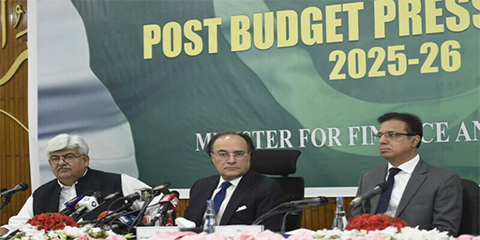
June 11, 2025: Journalists walked out of the post-budget press conference in Islamabad to protest the absence of a technical briefing and the government's dismissive behavior, calling it unacceptable and intolerable.
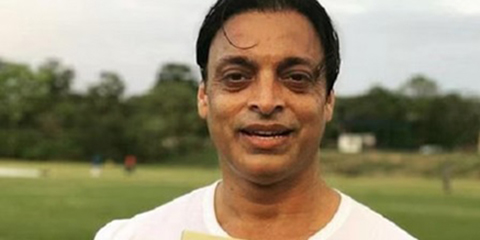
May 31, 2025: Dr. Nauman Niaz has issued a defamation notice to Shoaib Akhtar over derogatory remarks made during a recent broadcast, reigniting a longstanding media feud between the two prominent figures in Pakistan.

May 30, 2025: The Human Rights Commission of Pakistan has demanded the full repeal of PECA, citing its vague language, coercive powers, and threats to free speech and digital rights in Pakistan.
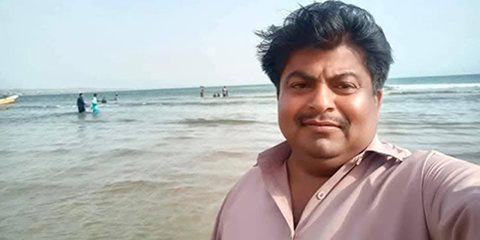
May 30, 2025: The Pakistan Federal Union of Journalists (PFUJ) has condemned the murder of journalist Syed Mohammed Shah in Jacobabad, calling for urgent justice and improved safety for media professionals in Sindh.

May 26, 2025: In Rawalpindi, police allegedly side with Jang Group to block 66 reinstated employees from resuming work despite court orders, drawing sharp criticism from unions and press freedom advocates.

May 25, 2025: PFUJ condemns the Jang Group's decision to dismiss over 80 employees in Rawalpindi, calling it an 'economic massacre.' The union warns of nationwide protests if workers are not reinstated.
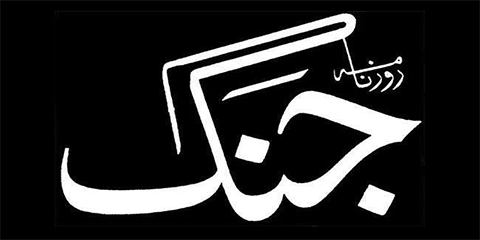
May 25, 2025: Daily Jang Rawalpindi has terminated over 80 employees, including female staff, despite multiple court rulings in their favor—raising concerns over labor rights violations and misuse of authority in Pakistani media.
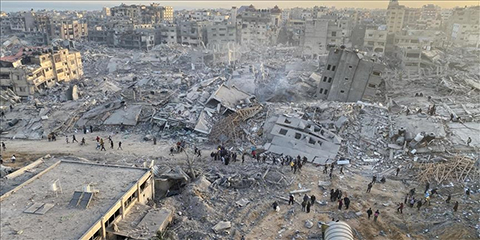
May 19, 2025 PJS reports 219 Palestinian journalists killed in Israeli attacks since October 7, with 30 women among the victims. Over 430 were injured and 685 family members were killed. Read more on the systematic targeting of media in Gaza.

May 15, 2025 Discover the legacy of Samiullah Khan, Pakistan’s legendary "Flying Horse," whose breathtaking speed and artistry redefined hockey. From Olympic glory to World Cup triumphs, his story is one of myth, movement, and magic.
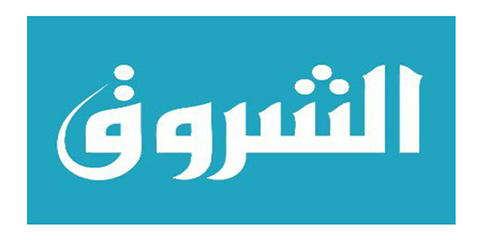
May 04, 2025 Algerian authorities suspend Echorouk News TV for 10 days after it used a racist slur against African migrants. ANIRA demands an apology, calling it a violation of human dignity.

May 04, 2025 NCHR and MMfD launch a journalism fellowship to train reporters on digital rights & gender inclusion in Pakistan. Supported by UNESCO, this initiative aims to bridge the gender digital divide. Apply by May 15, 2025!
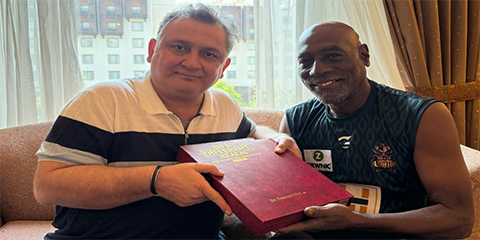
April 23, 2025 Discover Dr. Nauman Niaz’s In A Different Realm: Story of Quadruple & Triple Centuries 1876–2025, a profound exploration of cricket's most monumental innings, blending historical analysis with poetic narrative.